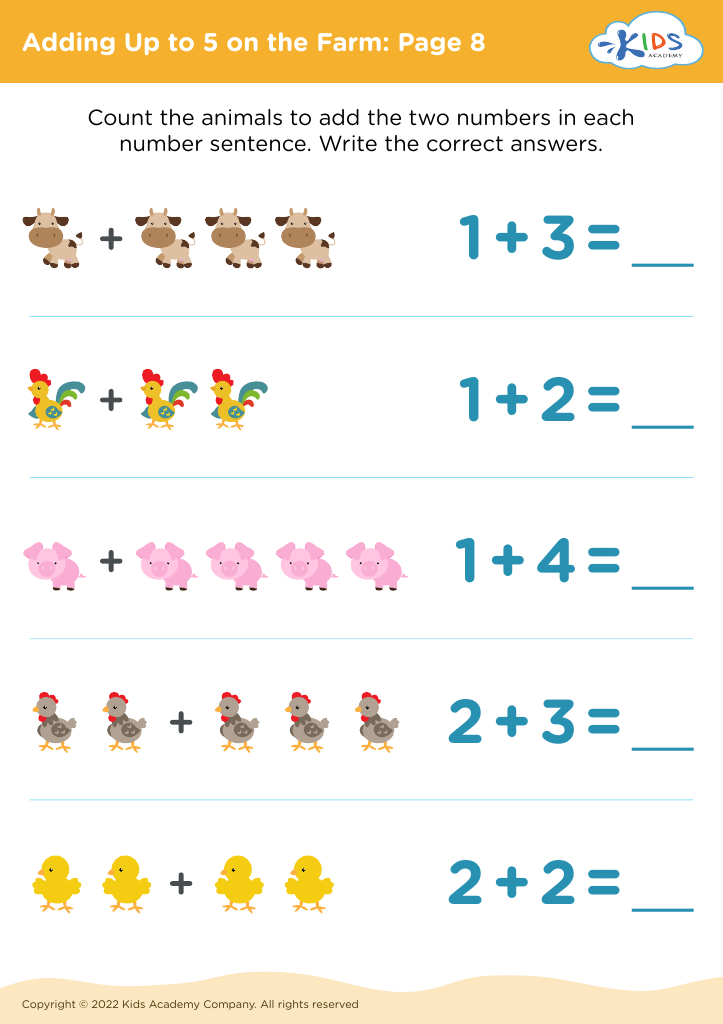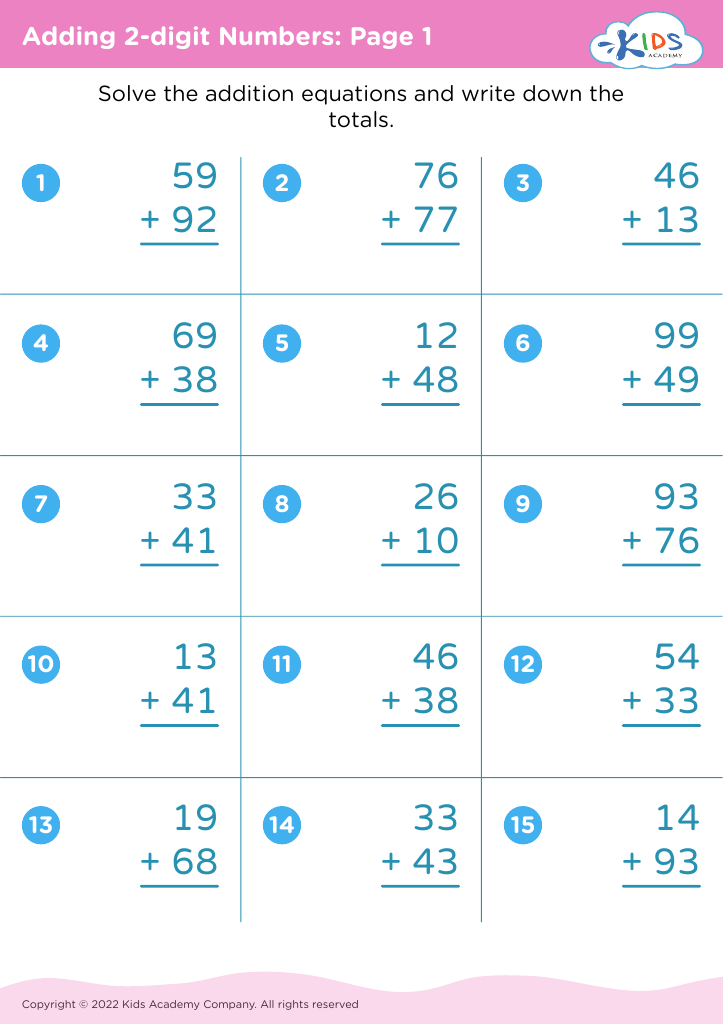Developing counting skills Addition Worksheets for Ages 5-8
3 filtered results
-
From - To
Enhance your child's counting skills with our engaging Addition Worksheets designed for ages 5-8! Tailored to support early learners, these worksheets provide a fun and interactive way to develop foundational math skills. Featuring vibrant illustrations and age-appropriate exercises, students will practice counting objects, matching quantities, and solving simple addition problems. These resources foster a positive learning environment, encouraging confidence and independence in young mathematicians. Ideal for classroom settings or home practice, our worksheets make learning mathematics enjoyable. Explore our diverse collection and watch your children's counting abilities flourish as they embark on their exciting mathematical journey!
Developing counting skills and addition abilities in children aged 5-8 is critical for their overall cognitive development and future academic success. Foundational math skills gained in these early years provide the groundwork for more complex concepts they will encounter later. By learning to count and grasp basic addition, children enhance their problem-solving skills, logical thinking, and ability to process information.
Counting helps children understand numerical relationships and quantities, paving the way for more advanced math skills like subtraction, multiplication, and even division. These early experiences in math build confidence, encouraging children to explore and engage with numbers playfully and creatively.
Moreover, strong early math skills lead to improved academic outcomes. Research indicates that children who achieve proficiency in counting and addition are more likely to excel in higher-level math in later grades, reducing the risk of falling behind their peers.
For parents and teachers, fostering a supportive and engaging environment for counting and addition activities promotes enthusiasm for learning. Playing math-related games, using visual aids, and integrating real-life scenarios can make learning enjoyable. Ultimately, prioritizing these skills ensures children develop a positive attitude towards math, setting them on a path for lifelong learning in mathematics and beyond.



















